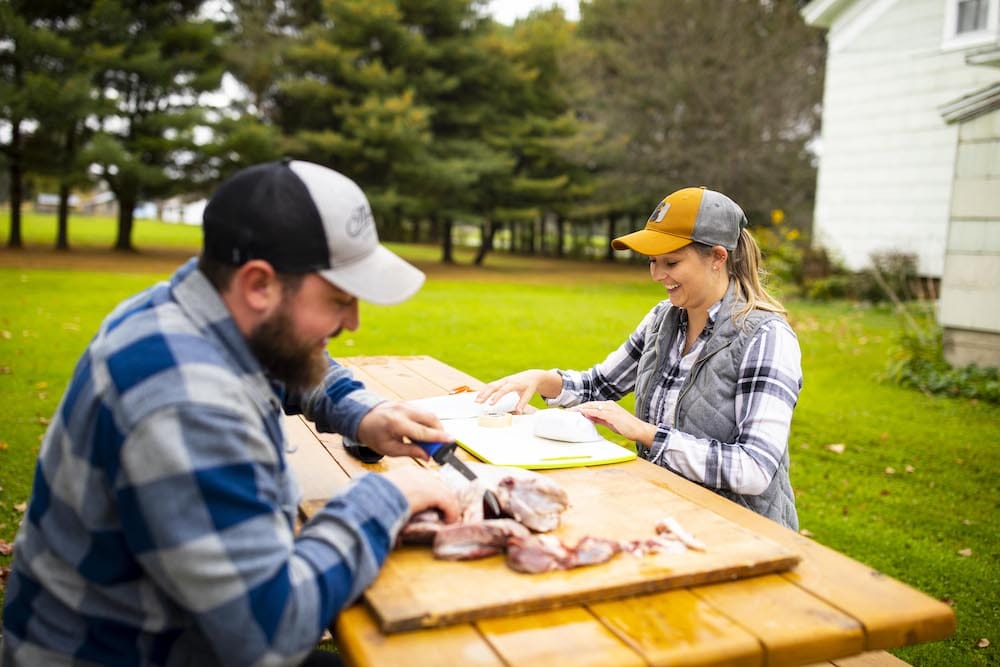We think about hunting every day, spend virtually all of our free time doing it and count down the days to opening day after the season ends. We can speak the latest lingo and talk tactics like buck bedding, optimal arrow weight and broadhead styles, but are we comfortable answering the most important question of all — why do we hunt? If you’re digging through mental file cabinets in search of the answer, don’t worry. It isn’t easily articulated. Your answer is important, though, so before you stammer through a response you’re not proud of, here are a few things to consider when talking about hunting to nonhunters.
A survey conducted by Responsive Management, a natural resources research firm, reported nearly 80% of Americans support hunting. However, the same study suggests that less than a third approve of trophy hunting. These stats are important because they help guide your response when expressing what hunting means to you. When faced with this tough question, focus on the core reasons you hunt. Bagging a big buck is nice, but let’s face it — that isn’t what keeps you coming back. Instead, focus on tangible experiences others can understand like:
It sounds cliché, but there’s never been a time like right now to explain the delicious and healthy benefits of being a hunter. Food prices are rising, and demand for meat is high. Consider sharing a meal with your nonhunting friends in a casual setting. As the locavore movement remains popular, people like to know where their food comes from — especially when it’s sourced locally. A tasty meal with good conversation is a great way to create a dialogue about hunting while welcoming newcomers into the lifestyle you’re passionate about.
Even though almost 80% of Americans support hunting, less than 4% participate. As a result, the way you communicate with a nonhunter is critical. These odds suggest you might be the only hunter this person knows, which provides you with an incredible opportunity to share your perspective. Rather than explaining all of your answers, offer to take them to see firsthand what it’s all about. Start small with a simple walk in the woods without a weapon and point out things like habitat features, plant species and animal sign. If things progress, you might even work toward going on a hunt together to show them exactly what it’s all about. Hunters see the world through their own unique lens, and sharing your viewpoint in a casual environment is a great way to help others understand your point of view.

Keep the conversation going and invite them to hunt or share your post-hunt processes with them. Photo Credit: BU
Make the most of every chance you get to share your perspective about hunting. Speak from the heart and lean on those experiences you hold near and dear, like time in camp with someone who mentored you or that time a sunset left you speechless. Most importantly, make time to follow up with anyone who asks why you hunt. Keep the conversation going and invite them to share your favorite pastime with you. Who knows — you might even turn them into a hunter themselves. Remember, someone once embraced the hunting lifestyle with you, showed you the ropes and passed on something that has significantly affected how you identify as a person. Now is your chance to return the favor.